The Lady Eve (1941)
By Toronto Film Society on July 24, 2021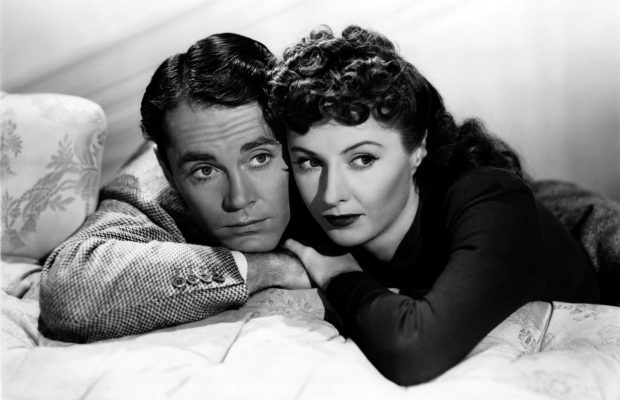
Toronto Film Society presented The Lady Eve (1941) on Tuesday, July 28, 1970 as part of the Season 22 Summer Series, Programme 3.
Fallen Arches USA 1933 2 reels b&w 16mm
Production Company: Hal Roach-MGM. Director: Gus Meins.
Cast: Charley Chase, Muriel Evans, Billy Gilbert, Eddie Dunn, Charlie Hall, James C. Morton, Harry Bernard.
Fallen Arches ranks as one of Chase’s all-time best shorts. In it, Charley is a clerk in Billy Gilbert’s office who takes everything he is told literally. After several silly examples, Gilbert send him out West with the parting remark, “Remember–get a good grip on yourself, keep a stiff upper lip, and never let your right hand know what your left hand is doing!” Whereupon Charley proceeds to grab his jacket, tighten his upper lip, and keep one hand inside his jacket as the other opens the door… The last half of the film reworks one of his best silent gags, from All Wet, with his car stuck in a water-filled ditch. It was even worth one more exposure, in his Columbia comedy The Awful Goof several years later.
Notes by Peter Poles
The Lady Eve (1941)
Production Company: Paramount. Producer: Paul Jones. Director: Preston Sturges. Screenplay: Preston Sturges, based on a story by Monckton Hoffe. Photographer: Victor Milner. Editor: Stuart Gilmore.
Cast: Barbara Stanwyck (Jean), Henry Fonda (Charles), Charles Coburn (“Colonel” Harrington), Eugene Pallette (Mr. Pike), William Demarest (Muggsy), Eric Blore (Sir Alfred McGlennan Keith), Melville Cooper (Gerald), Martha O’Driscoll (Martha), Janet Beecher (Mrs. Pike), Robert Greig (Burrows), Dora Clemant (Gertrude), Louis Alberni (Pike’s chef), Frank C. Moran (Bartender at party), Pauline Drake (Social secretary), Harry Rosenthal (Piano tuner), Abdullah Abbas (Man with potted palm), Norman Ainsley (Sir Alfred’s servant), Wally Walker (Sparky).
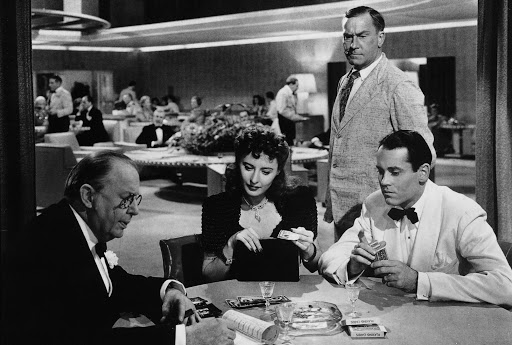
“Mr. Sturges has taken one of the stock stories off the movies’ middle shelf–the old one about the man who falls in love with a lady of unsuspected sin–and has given it such humorous connotation and such a variety of comic invention that it sparkles and cracks like a pretty right out of a brand-new box.
“The secret of Mrs. Sturges’ distinctive style is yet to be analyzed, but mainly it is composed of exceedingly well-turned dialogue, a perfect sense for the ridiculous in the most mundane and simple encounters, and generous but always precise touches of downright slapstick. No less than six flat falls are taken by the hero in this piece. And the manner in which action is telescoped and commented upon by fast and hilarious glimpses is cinema at its best.
“Likewise, Mr. Sturges has a genius for picking his casts. No one could possibly have suspected the dry and somewhat ponderous comic talent which is exhibited by Henry Fonda as the rich young man. And Barbara Stanwyck as the lady in the case is a composite of beauty, grace, romantic charm and a thoroughly feminine touch of viciousness. Other beautiful performances are contributed by Charles Coburn as a wry and lovable card sharper, Eugene Pallette as a much-abused tycoon, and Eric Blore as a confidence worker.
“Mr. Sturges may have sacrificed a rib to the cause, but he has done the old Adam proud in his creation of The Lady Eve.”
The New York Times, Bosley Crowther, February 26, 1941
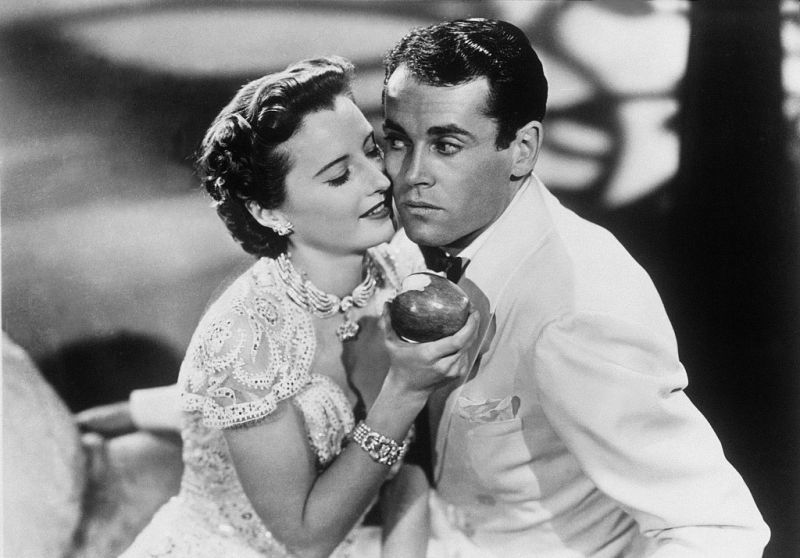
Barbara Stanwyck was born Ruby Stevens in Brooklyn in 1907. Orphaned at two, she was raised by an older sister, a show-girl, who boarded her with friends while she was on the road. Ruby went to work wrapping parcels at thirteen; at fifteen she acquired a job as a dancer; and at nineteen, with a new name, had the female lead in a Willard Mack play, “The Noose”. After a small role in the silent film Broadway Nights, she returned to the stage before filming The Locked Door in New York. Ladies of Leisure for Frank Capra was her first real success. Her screen roles project a self-assured, independent woman, often susceptible to love, but not above using her wiles to manipulate men. One of Hollywood’s better actresses, she has been nominated for an Academy Award in Stella Dallas, Ball of Fire, Double Indemnity and Sorry, Wrong Number, but has never won an Oscar.
Henry Fonda was born in Nebraska in 1905. He majored in journalism, but his family was unable to finance his education and he had to quit college. After a series of odd jobs, Mrs. Dorothy Brando (Marlon’s mother) persuaded him to play the lead in the Philip Barry play “You and I” at the Omaha Community Playhouse. After two years at the Playhouse, vaudeville, summer stock, and four years with the University Players, he played several small parts on Broadway before making his first film, The Farmer Takes a Wife. He enlisted in the navy during World War II and received a Bronze Star and a Presidential Citation. In 1949 he returned to a Broadway success in “Mr. Roberts”. It is impossible to list a “typical” Henry Fonda screen role. His realistic haracterizations and deceptively simple acting style in such diverse films as Young Mr. Lincoln, The Grapes of Wrath, The Ox-Bow Incident and My Darling Clementine, among other great Hollywood films, have placed him in the ranks of the top American actors. Oddly, he has only been nominated once for an Academy Award–for The Grapes of Wrath–and did not win.
Charles Coburn was born in Georgia in 1877, attained stardom on Broadway in 1903 in “The Christian”. He toured the U.S. with his own acting company for many years, and did not enter movies until 1938. He won an Academy Award for best supporting actor of 1943 for The More the Merrier, and was nominated for awards for his roles in The Devil and Miss Jones and The Green Years. He died in 1961.
Eugene Pallette was one of the better known character actors of the 30s and 40s. He was born in Kansas in 1889 to actor parents. After playing stock with a touring company and being stranded in Oregon, he worked as a street car conductor to save enough money to get to Hollywood. He started as an extra in Birth of a Nation and Intolerance. He has played in over ninety movies, and among his best roles are Friar Tuck in The Adventures of Robin Hood and Chick McGannin Mr. Smith Goes to Washington. He died in 1954.
Notes compiled by Aideen Whitten
You may also like...
-
News

Frances Blau
Toronto Film Society | February 27, 2024On Monday, February 26th, 2024, Toronto Film Society lost longtime friend, supporter, and board member Frances Blau. Known for her sense of humour, her love of film, her generosity,...
-
Special Events

Arsenic and Old Lace (1944) at the Paradise Theatre
Toronto Film Society | April 21, 2024Toronto Film Society presents Arsenic and Old Lace (1944) at the Paradise Theatre on Sunday, May 5, 2024 at 2:30 p.m. Screwball comedy meets the macabre in one of...
Programming

Virtual Saturday Night at the Movies
Toronto Film Society | April 11, 2024Toronto Film Society is back in the theatre! However, we’re still pleased to continue to bring you films straight to your home! Beginning Season 73 until now we have...
4-
 Toronto Film Society | April 21, 2024
Toronto Film Society | April 21, 2024
-
 Toronto Film Society | November 6, 2022
Toronto Film Society | November 6, 2022
-
 Toronto Film Society | August 1, 2023
Toronto Film Society | August 1, 2023
Donate to Toronto Film Society – We’re now a Registered Charity!
-
Copyright © 2017 Toronto Film Society.

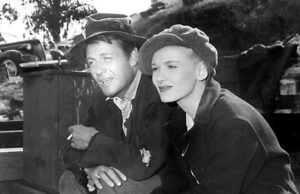
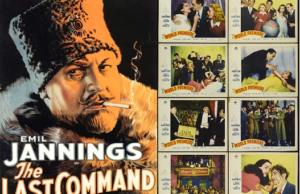
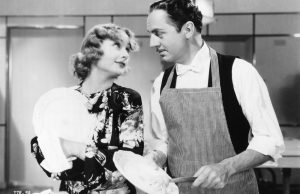
Leave a Reply